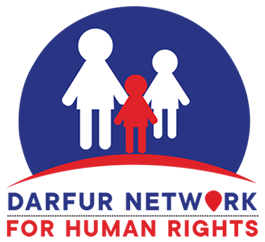Adre Refugee Camp
(Kampala) – Adre is the main town in the Ouaddaï Region, Chad, located 400m from the Sudanese border. According to the United Nations High Commissioner for Refugees, Chad hosts 1.1 million refugees, the highest per capita in Africa, including over 600,000 new Sudanese refugees since mid-April 2023. The war-fleeing population lives in self-constructed informal settlements in Adre, where underfunded humanitarian agencies struggle to provide adequate assistance.
Darfur Network for Human Rights (DNHR) Reports:
The increasing tension between the host and refugee community:
Refugees and asylum seekers cannot leave the camp after 7 PM due to ongoing tensions and conflicts between refugees and the local community. A recent fight in Al Senia market between the locals and the refugee population, triggered by the death of a young Darfuri woman, resulted in fatalities among refugee boys. Consequently, local authorities imposed a 7 PM curfew and closed gathering points.
Food Security:
Food supply is inadequate, and humanitarian agencies cannot meet the demand. Refugees struggle to find employment, leaving them without money to buy food. Children are forced to do odd jobs to support their families.
Healthcare Services:
Two clinics operate within the camp: Safe Algenina and Doctors Without Borders. However, there is a shortage of medicines, especially for chronic diseases. Volunteer doctor Mohammed Zakaria offers free dental and ophthalmology check-ups two days a week.
Water Supply:

Water is potable and available in sufficient quantities, although people have to wait for long time to fill up their jerrycans.
Shelter and Housing:
Most shelters are self-constructed and cannot withstand rain, making living conditions precarious.
Education:
Volunteer groups provide informal education to children who have been out of school.
Michi Refugee Camp
Refugees from Darfur in Michi Refugee Camp face insecurity and harsh conditions.
Water Supply:
Since April 20, 2024, the camp’s water supply has ceased after the responsible organization stopped operating. Despite government promises, water has not been provided, forcing refugees to walk four hours to obtain clean water.

(Womens bringing water back to the camp)
Shelter and Housing:
Weak infrastructure and windy conditions cause houses to collapse, resulting in injuries and deaths. Injured individuals are transported to Adre camp for medical aid.
Sexual Violence:
A recent case of sexual violence involved a woman being raped while collecting firewood just outside of the camp.
DNHR Appeals:
The Darfur Network for Human Rights urgently calls upon the humanitarian community, international organisations, and the local Chad government to take immediate and comprehensive action to address the dire conditions faced by Sudanese refugees. These individuals, who have fled war and violence, deserve a safe and dignified living environment. DNHR request increased funding, resources, and coordinated efforts to ensure food security, adequate healthcare, robust shelter, and educational opportunities for refugee children.

